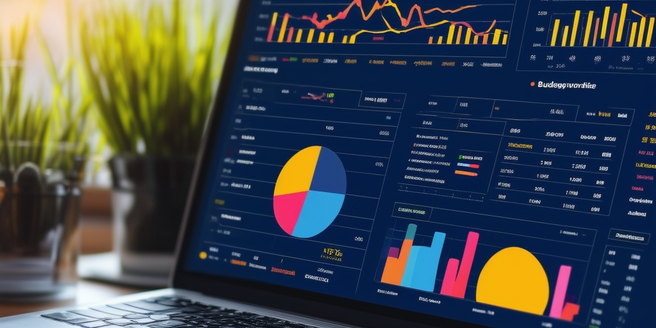
Analyzing Your Current Financial State
Before diving into budgeting tools, it’s essential to have a clear picture of your business’s current financial state. This includes fully understanding your economic position and the factors that influence it. Knowing and tracking key performance indicators (KPIs) can aid in this understanding. Your finances should be transparent and organized to help in making informed decisions. Part of this transparency comes from keeping detailed records of all transactions. Analyzing your current financial state involves evaluating your income, expenses, assets, and liabilities. It requires creating a balance sheet, income statement, and cash flow statement. When you have these financial statements at your hands, you can easily discern which areas of your business are financially healthy and which ones need improvement.
Overviews of Top Free Budgeting Tools
There are numerous free budgeting tools available for small businesses. Quickbooks, Mint, and Zoho Books are few of the widely used tools. In addition to these, tools like FreshBooks and Wave also provide an array of features for small business budgeting. Each of these tools has unique features that set them apart from one another. For instance, Quickbooks is a comprehensive all-in-one solution for your budgeting needs. It offers the convenience of tracking incomes, expenses, and profits all in one place. Mint is known for its user-friendly interface. It tracks your bills, budgets, and sends payment reminders. On the other hand, Zoho Books is great for invoicing, banking, and inventory management. They provide crucial insights into your business and help in making informed budgeting decisions.
Detailed Reviews of Each Budgeting Tool
Quickbooks, a popular tool used by many businesses and self-employed individuals, offers a variety of features for financial management tasks such as tracking sales, creating and distributing invoices, and generating financial reports. Similarly, Mint is a tailored app focused on personal finance management, facilitating a better understanding of spending habits, efficient budget planning and motivating financial goal setting. Then there is Zoho Books, a professional accounting software that integrates with your business; it offers automated bank feeds, a collaborative client portal, and custom invoices design. Each tool, Quickbooks, Mint, and Zoho Books, offers unique capabilities, benefits, and features for different users, industries and workflows. For a comprehensive understanding of each tool, refer to our detailed reviews of Quickbooks, Mint, and Zoho Books on our website, providing you with insights to make an informed decision for business or personal use.
How to Choose the Right Budgeting Tool for Your Business
Choosing the right budgeting tool for your business depends on distinctive factors including size of your company, the specifics of your operations, financial management details, and your team’s financial expertise. Essential considerations for selecting the ideal budgeting tool are: ease of software navigation, integrations with other business tools, scalability, security, and customer support. Furthermore, it’s important to evaluate the pricing score against the practical value it delivers to ensure the tool won’t become a financial burden. Opting for a flexible, adaptable budgeting tool that can grow with your business helps to avoid system changes in the future, thus facilitating financial planning and business growth.
Tips on Effectively Implementing a Budgeting Tool in Your Business
Choosing your optimal tool is only the beginning; effectively implementing it is key. Proper training and educational resources for your team can enhance the tool’s operational efficiency. Regular budget reviews and adjustments are crucial to ensure accurate financial projections and resource allocation. A budget should be seen as a dynamic tool requiring frequent updates to reflect your organization’s financial standing accurately. A final focus is to tap into the valuable insights provided by these tools. They are not simply operational instruments, but resources that can improve understanding of financial standing and promote better decision making.
